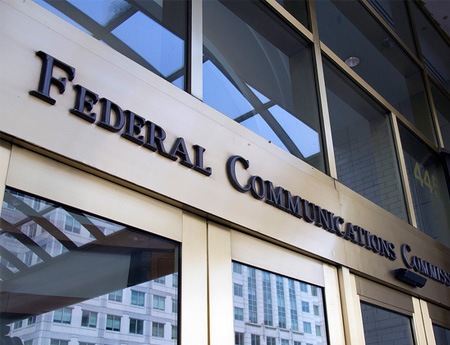FCC Transition Team's Jamison: Do We Need an FCC?

The smarter way to stay on top of broadcasting and cable industry. Sign up below
You are now subscribed
Your newsletter sign-up was successful
In staffing his FCC transition team, President-elect Donald Trump has tapped a pair of American Enterprise Institute (AEI) vets and free market de-regulators in Jeffrey Eisenach and Mark Jamison.
While it is tough to predict whether the merger-threatening populist Donald Trump (he has said he opposes AT&T-Time Warner and would unwind Comcast-NBCU) or the regulation-threatening Trump (he wants two regs axed for each new one added) will set the tone for the FCC, the choice of the transition team leadership could be instructive.
Eisenach and Jamison are linked at the communications deregulatory hip by AEI, a free market think tank.
Eisenach is director of AEI's Center for Internet, Communications, and Technology Policy, while Jamison is a visiting fellow there. Eisenach is executive editor of AEI's TechPolicyDaily.com, while Jamison is a writer for the site.
While Eisenach has gotten attention as a key overall transition team member for his deregulatory views, including on net neutrality, Jamison's appointment adds some new deregulatory punch. "Regulation is about disappointing people at a rate that they can endure," Jamison has written. But he is clearly out to "disappoint" people less.
He is the director of the Public Utility Research Center (PURC) at the University of Florida and has written extensively on telecom issues.
Among the recent headlines of his posts on TechPolicyDaily are:
The smarter way to stay on top of broadcasting and cable industry. Sign up below
"Restoring Effective Leadership at the FCC" (he concludes that the FCC under chairman Tom Wheeler has been politicized, less than analytical and lacked transparency); "Why Secretary Clinton's Broadband Subsidies Will Fail" (Jamison says broadband subsidies are inefficient); and even "Do We Need the FCC?" (his enigmatic answer: "No, but yes."
Jamison says most of the reasons for having an FCC have "gone away," in part because he says there are few telecom network monopolies, and ISPs are rarely among those few. That is quite the difference from the Wheeler FCC's emphasis on ISP gatekeepers to justify various regulatory approaches, including net neutrality and broadband privacy rules, both of which are likely to get a second look under a Republican chair.
Jamison also says that web content is a competitor to broadcasting and sufficiently so that it would seem to "eliminate any need for FCC oversight of broadcasters."
Broadcasters have been arguing for years that the FCC was wrong not to include web content as a competitor when it looks at its media ownership rules.
He concedes there might be need for rules for the airwaves during times of emergency, but that does not require regulating the content providers themselves.
He argues that the reasons there is still an FCC have more to do with inertia—an aircraft carrier is tough to stop once it gets going—and the fact that it benefits businesses and special interests, sounding a populist note that resonates with the Trump mantra.
"The recent work on net neutrality, business data services, and set-top boxes are bestowing benefits to some segments of the industry at the expense of other segments," he says, "and at the expense of customers, who ultimately bear the brunt of regulatory rent-seeking. The FCC’s universal service subsidies have, for example, delivered profits to numerous telephone companies over the years. And the cottage industries formed in support of net neutrality, set-top box regulation, and universal service policies employ a large number of people."
So, what is the "yes" in Jamison's answer to whether an FCC is needed? He says it "appears" to be "important to keep radio spectrum allocation independent of day-to-day political pressures." Traditionally even deregulatory Republicans conceded there needs to be some spectrum cop on the beat.
While Jamison has plenty of criticisms of Wheeler, he is a fan of several former chairs, including Republican Michael Powell, currently head of NCTA: The Internet & Television Association, but also two Democrats, Reed Hundt and Bill Kennard (chairs under Bill Clinton).
He said Hundt provided lessons in how to build staff and free them from political concerns. Kennard gets props for giving the agency a larger purpose, in Kennard's case providing pro-competitive models for regulators in other countries and setting an example of independence as an agency. Powell gets credit for "decreases in backlogs, improved communications and morale, and a stronger esprit de corps." He says Powell "built deep commitment, ownership, personal worth, and shared success within the staff."
"Strong leadership at the FCC is needed regardless of the new administration’s regulatory agenda," he writes. "If the FCC’s work remains largely unchanged, the rebuilding is needed to ensure that the agency is strong enough to provide substantive decision-making and to withstand future politically-oriented chairmen. If the administration follows the other extreme and moves to largely disband the agency, effecting the change will require strong leadership."
Contributing editor John Eggerton has been an editor and/or writer on media regulation, legislation and policy for over four decades, including covering the FCC, FTC, Congress, the major media trade associations, and the federal courts. In addition to Multichannel News and Broadcasting + Cable, his work has appeared in Radio World, TV Technology, TV Fax, This Week in Consumer Electronics, Variety and the Encyclopedia Britannica.

